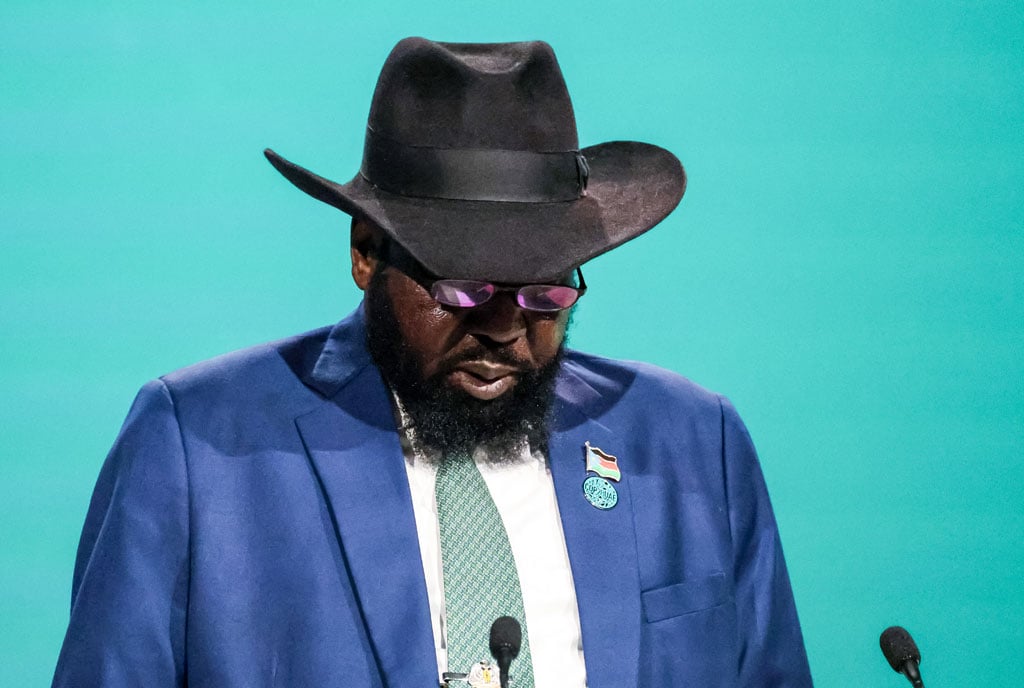Kiir makes first move as EAC head to stem east DR Congo violence

President of South Sudan, Salva Kiir Mayardit. PHOTO/FILE/AFP
South Sudan’s President Salva Kiir on Thursday toured Rwanda, Burundi and Democratic Republic of Congo (DRC), in his role as the East African Community (EAC) chairman, in an attempt to stem rising tensions between the three neighbours.
President Kiir’s first stop was in Kigali in efforts to deescalate the conflict in the Eastern DRC that has intensified since the withdrawal of the EAC Regional Forces (EACRF), whose mandate expired late last year.
EAC secretary general Peter Mathuki while in Kigali said that Rwanda’s President Paul Kagame and his counterpart Kiir called for the support of the EAC-led Nairobi Process and Luanda process.
“This is to avert the unfolding dire security situation in eastern DRC which risks spill over into neighboring partner states,” said Dr Mathuki.
Luanda Process, led by Angola’s President Joan Lorenco, seeks to calm tensions between Rwanda and DRC who blame each other of fomenting rebellions against their authorities, while the Nairobi Process is a dialogue push led by Kenya’s former president Uhuru Kenyatta in attempt to pacify warring factions inside the DRC by bringing them to the table, if they lay down the arms.
Kiir also met with Burundi’s President Evariste Ndayishimiye, who has blamed Rwanda of supporting rebels against his government, and DRC President Felix Tshisekedi, in efforts to find a common ground to normalise tension between the three EAC member states.
Kigali, however, denies both claims by Burundi and DRC.
Since the withdrawal of the EACRF in December last year, fighting between the DRC armed forces (FARDC) and M23 rebels have intensified in the eastern part of the country. Kinshasa accuses Rwanda of backing M23 rebels.
In addition, DRC declined to renew EACRF’s mandate after Tshisekedi criticised the regional forces of failing to execute their mission of eliminating the M23 rebels and other armed groups who refused to surrender.
Warning
Kigali on the other hand denies backing M23 rebels but has also warned that fighting the group, instead of addressing their grievances, could escalate the war.
“The recent M23 rebel advances are due to the DRC’s decision to expel the EACRF in December 2023 which oversaw ceasefire and withdrawal efforts,” a statement read from Rwanda’s ministry of Foreign Affairs on February 17, 2023.
According to Kagame’s government, “Protecting the rights and lives of Congolese Tutsi is the responsibility of DRC. The consistent failure to do so has exposed the entire Great Lakes Region to 30 years of conflict and instability.”
On Wednesday this week, African Union Commission (AUC) chairperson Moussa Faki Mahamat raised concern of the continuous tension in Eastern DRC calling for a rapid de-escalation.
Since the withdrawal of the EACRF in DRC, Tshisekedi has turned to the South African Development Community (SADC) which has since deployed their forces that Kinshasa will fight the M23 rebels.
The bad blood between Burundi and Rwanda has seen Bujumbura close all its land borders with Rwanda in January this year just less than two years after its reopening.




